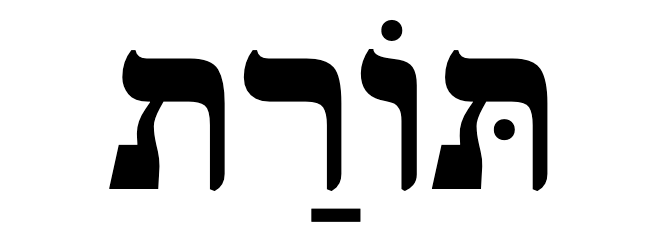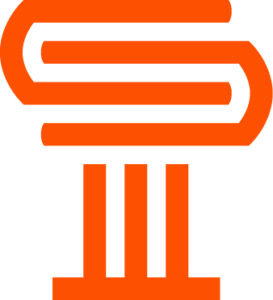WHAT DO WE MEAN BY “TORAH”?
March 9, 2023 2024-05-10 13:08WHAT DO WE MEAN BY “TORAH”?

Law? Pentateuch? Instruction? What do people mean when they say the word “Torah”? In this post, we talk about three major uses of the word in our churches today, and what we usually mean when we use this word at Pillar (and more importantly, what we don’t mean!).
Torah=Law?
Sometimes when people say “Torah,” they mean simply biblical legal texts or case laws (usually contained within the first five books of the Bible). In our contemporary 21st century context, when we hear the word “law,” however, we think of statutes and regulations (e.g., a stop sign). In the Hebrew Bible, however, the Torah includes much more than just legal texts or case laws. It contains cosmology, etiology, narrative, and even poetry. This means that Torah, while it can’t mean less than “law,” most likely means more.
Why “law”? When the Hebrew Bible (a.k.a. the Old Testament) was translated into Greek, very often texts that referred to the instruction or teaching of Yahweh (e.g., Exod 13:9; Psa 1) were translated using the Greek word nomos, meaning “law.” This has also bled over into English translations that continue to translate torah as “law.” Unfortunately, given our 21st century understanding of the word “law,” using the word torah in this sense can get pretty confusing, which is why we usually try to be more specific and say “legal texts” when referring to specific biblical case laws or statutes.
Torah=First Five Books of the Bible?
Other times (particularly among those familiar with the Hebrew Bible as a Jewish text), “Torah” refers to the first five books of the Hebrew Bible, often attributed to Moses. That is why Jewish scholars and others may refer to the Hebrew Bible as the “Tanakh” (an acronym for the major divisions of the Hebrew Bible: T= “Torah/Law”; N= “Nevi’im/Prophets”; K= “Ketuvim/Writings”). We will sometimes use the word in this sense to refer to this group of books in the Hebrew Bible.

Torah=Instruction?
When we say torah around here, usually we mean “instruction”–a broader word that indicates more than just legal texts. Instruction is teaching that demonstrates God’s desire for humanity. In this way, the torah of God can contain narrative, poetry, and, yes, case laws (such as those found in Exod 20-24 and Deuteronomy). By broadening our understanding and use of the term torah, we are encouraged to see all of Scripture (including the first five books of the Hebrew Bible) as teaching and instruction from God that is intended to impact the lives of those seeking to live faithfully in the midst of a changing and chaotic world.
So, the next time you’re reading the Old Testament in English, try to substitute the word “law” for “instruction” and see if it makes a difference in your understanding and application of the text.

Do you want to know more? Listen to the full podcast episode on torah here. Would you like to receive more exclusive content from Pillar Seminary?
Click here to receive content from Pillar’s faculty and stay up to date with what’s going on at Pillar Seminary via email.
This post is based on an episode of the Pillar Podcast featuring Dr. Scott Booth, Dr. Eric Smith, and Dr. Dan Lowery entitled “What Do We Mean When We Say Torah?” It was summarized and edited by Andrew Cress.
Related Posts
LUNCHTIME SEMINARY ON ACTS (FALL 2023)
JUDGING LIVES AND SEALING FATES IN THE HEBREW BIBLE
SCAPEGOAT, AZAZEL, AND THE ATONEMENT
EASTER: THE BEGINNING OF THE STORY
WAS JESUS IN THE OLD TESTAMENT?
Search
Popular Tags





